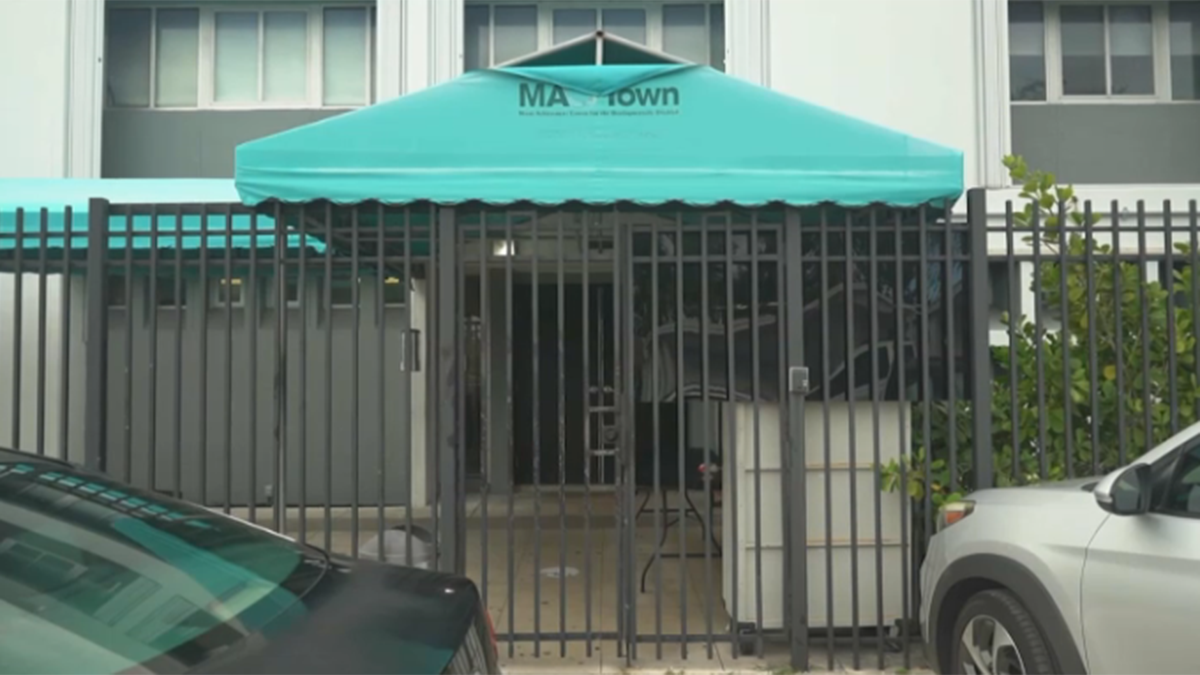When a woman gets diagnosed with cancer, radiation can save her life. But with it, can come devastating impacts to her fertility. Now, a local hospital is the first to perform a procedure that gives women hope for the future, and it involves temporarily moving around your organs.
Courtney DeStefano was diagnosed with a rare cancer that would mean radiation to her reproductive organs. Days after turning 33 years old, she suddenly found herself quickly deciding to save her life and her fertility.
"You wouldn’t know that anything was moved around, right? But I felt like a Franken-girl kind of thing,” DeStefano said.
"Women that usually get diagnosed with this are in their 70s, let’s say, and fertility is not a concern, so they can just do radiation or do a hysterectomy, remove all the areas that may be affected and call it a day,” said DeStefano.
The Hurricane season is on. Our meteorologists are ready. Sign up for the NBC 6 Weather newsletter to get the latest forecast in your inbox.
Dr. John Diaz, a gynecologic oncologist at Baptist Health’s Miami Cancer Institute, immediately worked to look past DeStefano's cancer diagnosis and into her future.
"As women continue to go to law school, go to med school, you know, focus on their careers and delay starting their families, we're starting to see now women being diagnosed with these cancers and yet haven't completed their family, or in some cases, even started. And so we needed to find an option,” said Diaz.
It involved thinking outside the box.
Local
"Yeah, they moved my uterus up, and they attached it to my abdomen, and my ovaries too. And I would kind of point out where it was at, and it’s a little shocking to say,” said DeStefano.
For months, while DeStefano underwent radiation therapy to get rid of her tumor, her uterus was suspended in her abdomen—moved there by doctors in a procedure called uterine transposition. The Miami Cancer Institute is now the first hospital to complete this procedure in South Florida.
"It was an educational moment for a lot of doctors. I even went to the ER at one time, and they didn’t read my notes. They said, 'Oh, you have a tumor growing on your abdomen.' And I’m like, 'No, that’s my uterus,” said DeStefano.
It’s a wild concept and a groundbreaking advancement in cancer care. Patients who qualify are young women facing treatment for pelvic or rectal cancers.
"Many physicians aren't even aware this is an option, even oncologists themselves. So we're getting the word out,” Diaz said.
Enter baby Hudson, the first success story in the United States. He was born via cesarean surgery this spring after a woman successfully completed her uterine transposition surgery at Memorial Sloan Kettering Cancer Center in New York. While DeStefano isn’t quite ready yet, she’s grateful that this is only the beginning of her story.
“I've always worked with kids. Children are... I'm just connected to them. So it’s just something I’ve always seen in my future,” she said.



